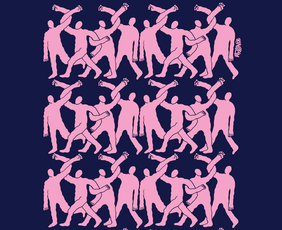The power of incorporating multiple narratives for a global classroom
Overview

| MODULE: | EDUC43870 Global Development Education |
|---|---|
| PROGRAMMES: | MA in Education and MSc in Education, Children and Youth |
| MODULE COORDINATOR: | Dr Gabriela Martinez Sainz |
| COLLABORATORS | Dr Daniel Capistrano (co-lecturer) |
| STUDENT COHORT: | Postgraduate students |
Background
One of the main objectives of the module is to help students to understand the interplay of education and the societal challenges we face today, including poverty, climate change, migration, conflict and human rights violations among others. The ultimate goal of the module is for students to understand how education can address these issues and promote social change, not only at an individual and collective level, but also structural change. It is through this understanding that students will be able to identify the opportunities and possibilities education offers to promote an equitable and sustainable society. To foster this understanding, in the module we build upon theoretical and practical principles of Intercultural Education.
Intercultural Education, as conceptually defined by the Department of Education and Skills in Ireland, is an approach to education which respects, celebrates and recognises the normality of diversity in all areas of human life. It sensitises the learner to the idea that humans have naturally developed a range of different ways of life, customs and worldviews, and that this breadth of human life enriches all of us. It also promotes equality and human rights, challenges unfair discrimination, and promotes the values upon which equality is built that establishes the way we interact with our students and how we behave in the classroom. In our module, Intercultural Education has a dual function, first as a key concept that we want our students to comprehend; second, a pedagogical practice that establishes the way we interact with our students and how we behave in the classroom.
Goals
Our aim was to develop a module that not only promoted critical thinking about education but also gave experiential learning opportunities for students to experience first-hand the underpinning principles and resulting practices of Intercultural Education. Our goal was for students to understand that Intercultural Education in practice is reflected not only in the content that is taught but also in the form that it is taught as well as the relationships that are developed as a result of the teaching.
We decided to focus on intercultural narratives to demonstrate the linkages that exist between the content, the pedagogy and relationships in the classroom that can foster intercultural education. The focus on narratives would allow us to help them experience, in practice, what it entails to develop intercultural competences, that is the combination of knowledge, skills, and attitudes that allow
Effective and appropriate behaviour and communication in intercultural situations;
(Deardorff, 2006)
The Innovative Approach
We decided to focus on narratives and storytelling as tools to engage students in critical reflection of Intercultural Education, but also as a way to demonstrate how it can be practiced in the classroom. We focused on integrating marginalised voices into the narratives we presented to our students to explicitly counteract the mainstream stories and voices common in the discussion of societal challenges we address in the module. Thus, we first identified the narratives that were already present in the module, that is the stories that we were introducing to the students through the content and case studies discussed.
Once we identified the narratives present, we analysed which voices were missing in those narratives paying special attention to narratives and stories that also reflected the context of our students as we usually have a very international cohort of students. We discussed how we could expand the map to incorporate new narratives, particularly from marginalised and vulnerable groups, but not only into the content through recommended readings and authors we explicitly discuss in the module but also in our pedagogy through the activities and assignments we ask and in our relationships with students.
We made a conscious effort then to incorporate a culturally diverse reading list, we also revisited the core concepts discussed in the module to teach theories and concepts in Education from the Global South and that non-Western models of education. We then adapted all the case studies and examples discussed in the sessions of the module in order to provide a wide array of socio-linguistic, cultural and religious diversity. We finally emphasised during the group discussions the value of non-Western knowledge and practices in education to tackle some of the greatest societal challenges of our times, for example climate change or gender inequality.
Results
We had really high levels of engagement throughout the module, and very positive feedback from students at the end of it. In particular, students commented on the benefits of the diversity of cases presented in the module to give them a
better idea of first-hand information on what was happening elsewhere
and as a way to enrich their knowledge about the world. The use of marginalised narratives help students to share relevant cases from their own contexts facilitating Intercultural Education practices not only by our teaching but also in their peer-learning.